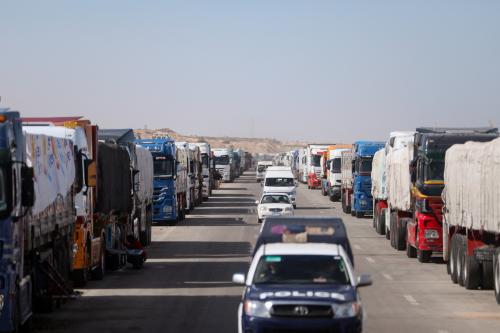The crisis in the Middle East has attracted a great deal of international attention and emotions. Regardless of which position one takes, it is quite understandable why the situation demands attention. The security of the state of Israel is of great concern and so is the suffering of her people and those affected by the conflict in the region. Likewise, the internal conflict in Syria has dominated news for the better part of the year. Again, the deaths and suffering of innocent people does warrant such attention.
In the Democratic Republic of Congo (DRC), a major crisis resulting in untold human suffering has been unfolding for the last few months, but has received scant attention in the media. Even worse, there have been no major international efforts to deal with it. There are some United Nations peacekeeping forces, but their mandate is limited, and they have not been able to halt the escalation of the conflict. Although the crisis in the DRC has a long history, the current escalation has the potential to generate into one of the most serious humanitarian crises in Africa.
At the center of the current crisis is the militant rebel group Mouvement du 23-Mars (March 23 Movement), commonly referred to as M23. The name originates from a “peace deal” signed on March 23, 2009, between the government of the DRC and the rebels who comprised the National Congress for the Defense of the People. The agreement called for the rebel group to convert the movement into a political party and for the government to release members of the group captured by the government. Both the government and the rebel leaders agreed to search for political solutions to their differences. The agreement was supposed to result in cessation of hostilities between the government and the rebel group. This agreement was short-lived, however, and the now the rebels have not only regrouped but gained strength as more and more government forces have defected and joined the rebel group.
The already fragile government of the DRC seems ill prepared to deal with the rebel movement, which it largely blames Rwanda for supporting. Already, the rebels have taken control over large sections of the eastern part of the country, including the city of Goma. The rebels are also controlling many border crossings, charging fees to foreigners crossing the borders. Now M23 rebels are more energized and have set their eyes on the capital city of Kinshasa with the intent of taking control of the entire country. Without major initiatives to halt the war, the situation in DRC can only get worse. Unfortunately, this is one crisis that does not seem to attract major media attention or even concentrated focus by the developed countries. The Africa Union itself seems to be missing in any major discussions on how to resolve the situation. It is like the world has just decided to sit and watch the killings from afar.
The many contributory factors of the current conflict notwithstanding, there is no disagreement on the magnitude of its toll in terms of human life and suffering. It is estimated that from 1998 until the 2009 failed peace agreement, the conflict in the DRC left 5.4 million people dead—at points averaging 45,000 deaths a month—and millions of people displaced. Since the advent of the current crisis earlier this month, well over a hundred people have been killed, and it is estimated that between 50,000-70,000 people have had to flee the area, many thousands of whom were already displaced in refugee camps from unrest earlier this year. By all indications, these numbers are likely to increase as precarious living conditions, food insecurity and disease deteriorate the lives of civilians in the DRC. And so far, the world is watching the situation unfold, watching as lives are lost but almost nothing is done about it.
But the world has not really forgotten the DRC. Virtually all the developed countries are there for business—exploiting the rich mineral wealth of that country. Neighboring countries, too, are involved particularly in the illegal cross-border trade in minerals. The DRC is probably the richest country in the world in terms of mineral reserves and is home to the largest deposits of some of the most valuable minerals such as copper, uranium and cobalt. In addition, the country is endowed with large deposits of gold, diamonds, tin, tungsten, tantalum and many others within its borders. As the crisis continues, many international companies continue to do lucrative business, made possible in part by their cooperation with cartels and all manner of illegal groups, including armed brokers, to exploit the wealth of that nation. Under the fragile situations, many individuals and businesses benefit as they are able to enter into deals that bypass legal authorities. It does appear that, for the DRC, instability is good for mineral exploitation and it is also good for those in the country who want to enrich themselves at the expense of the majority of citizens.
It seems logical to infer that the reluctance for many countries to halt the massacre in the DRC is informed by rational self interest. The fact that instability creates some incentive-compatible conditions for businesses, illegal groups and corrupt officials acts as a powerful ingredient to fuel the war. For the DRC, the richest piece of real estate in the world, without concerted international efforts to deal with the crisis directly and focus on the mineral exploitation chain, there is little hope. And the people will continue to die while the minerals find their way to international markets.

Commentary
Crisis in the Democratic Republic of Congo: “Let the People Die but the Minerals Flow”
November 26, 2012